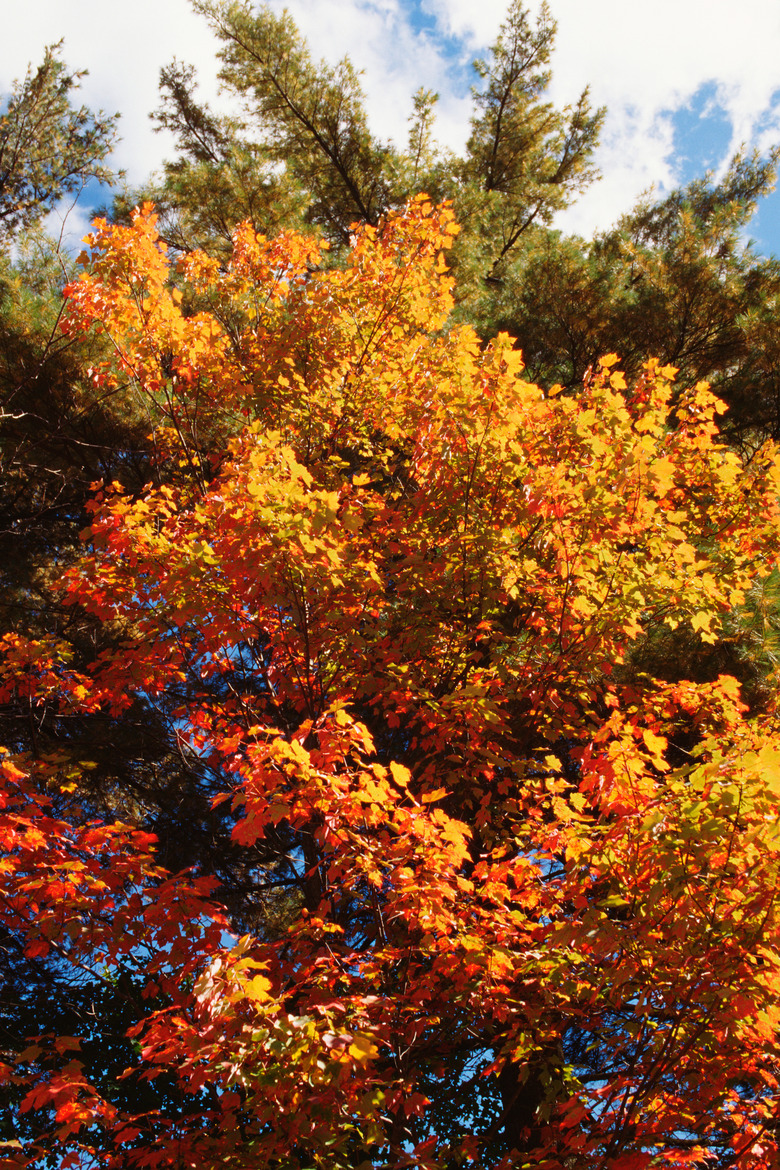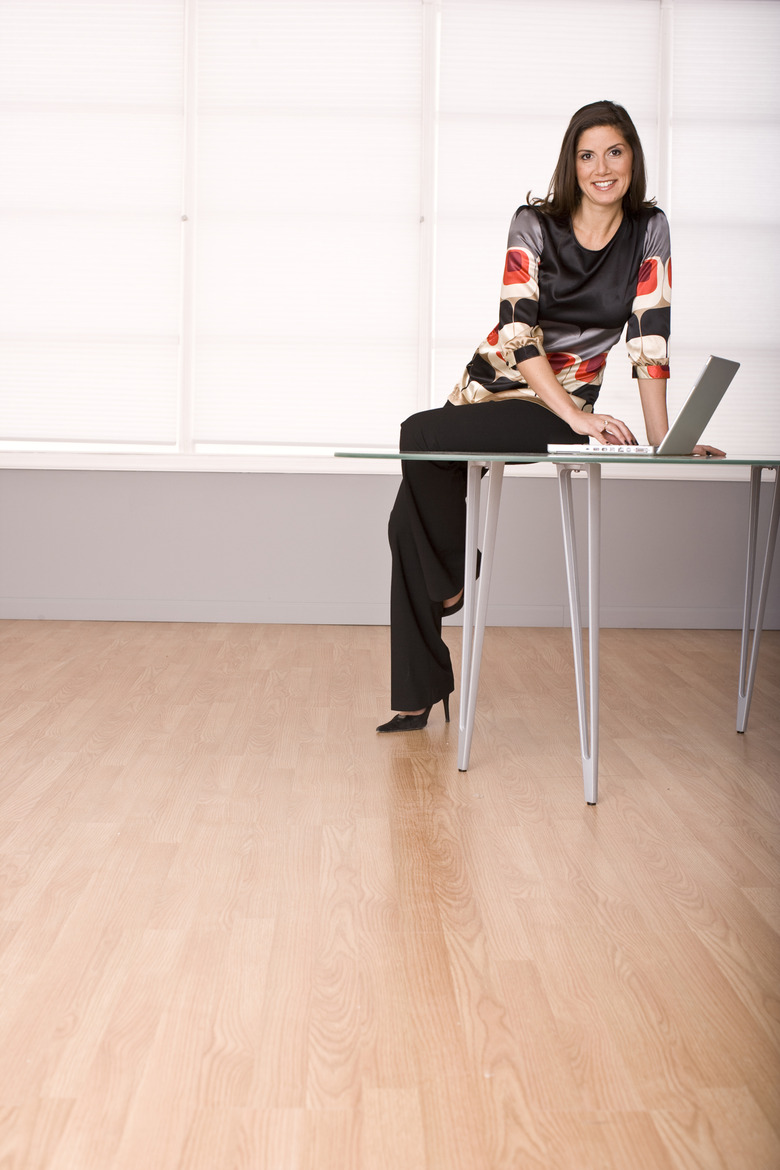What Is The Strongest Wood: Maple, Birch, Poplar Or Ash?
The specific gravity measurement and the Janka pounds-force rating are two measures of the strength of wood. They also provide useful guides in selecting the right wood for flooring, furnishings or craft and carving projects. Local and online retail sources provide rating information and guidelines to help you choose the appropriate hardwood product.
Hardwood Ratings
Hardwood Ratings
Specific gravity, the most important predictor of wood strength, measures the ratio of wood density to that of water. Ebony has a high specific gravity of 1.12. American balsa, among the softest and lightest of woods, has a low specific gravity of 0.17. The Janka hardness rating measures wood to rate its suitability for flooring. It reflects the force in pounds required to push a small steel ball into the wood. Because of that, the term for this unit of measure is pound-force. Ebony measures 3,220 on the Janka scale; balsa wood measures 100. Tests are conducted on woods at 12 percent moisture content.
Maple
Maple
Maple trees are classified as either hard or soft. Sugar maple and black maple are hard. Hard maple is a workable wood resistant to abrasion, with a uniform texture and fine grain. The wood is strong, stiff and shock-resistant. The grain of sugar maple is usually straight, sometimes displaying attractive curly or bird's eye patterns. The specific gravities of sugar maple and black maple are 0.63 and 0.57 respectively. Bigleaf maple is moderately hard. Silver maple, red maple and boxelder are soft maples. The wood of soft maple is not as heavy or as strong as that of hard maple. Janka ratings for maple range from 700 for silver maple to 1,180 for black maple.
Birch
Birch
Between 30 and 50 species of birch grow in Asia, North America and Europe. The wood of sweet and yellow birches is hard, strong and heavy. The specific gravity of sweet birch is 0.65; that of yellow birch is 0.62. Paper birch wood is lighter and not as stiff, hard or strong. Sweet birch has a Janka rating of 1,470. Yellow birch rates 1,260, paper birch 910, and gray birch 760.
Poplar
Poplar
The genus Populus comprises 35 species, including poplars, cottonwoods and aspens. Poplar woods are soft and white, with uniform texture and straight grain. The specific gravity of poplar woods ranges from 0.31 to 0.43. The Janka ratings for bigtooth aspen and quaking aspen are 420 and 350.
Ash
Ash
The 40 to 70 species of ash trees are native to Central and North America. The specific gravity of ash woods ranges from 0.60 for white ash to 0.49 for black ash. Blue ash has a Janka rating of 2,030. White ash is rated at 1,320 and green ash at 1,200. Oregon ash has a Janka rating of 1,160, and pumpkin ash rates 990. The lowest Janka rating for an ash wood is black ash at 850.
Summary
Summary
Among maple, birch, poplar and ash, sweet birch has the highest specific gravity at 0.65, with a Janka measurement of 1,470. Blue ash has the highest Janka rating at 2,030, with a specific gravity of 0.58. Sugar maple, black maple, sweet birch, yellow birch and white ash are all strong hardwoods. Poplar woods are unsuitable for projects requiring hardwood.
References
- World Floor Covering Association
- Wayne's Word; Hardwoods; Trees & Shrubs With Dense, Hard Wood; W.P. Armstrong; April 28, 2010
- United States Department of Agriculture; North American Hardwoods; Harry A. Alden
- Oregon State University; College of Forestry; Basic Wood Properties; Terry Brown
- Lowe's: Guide to Buying Hardwood Flooring

